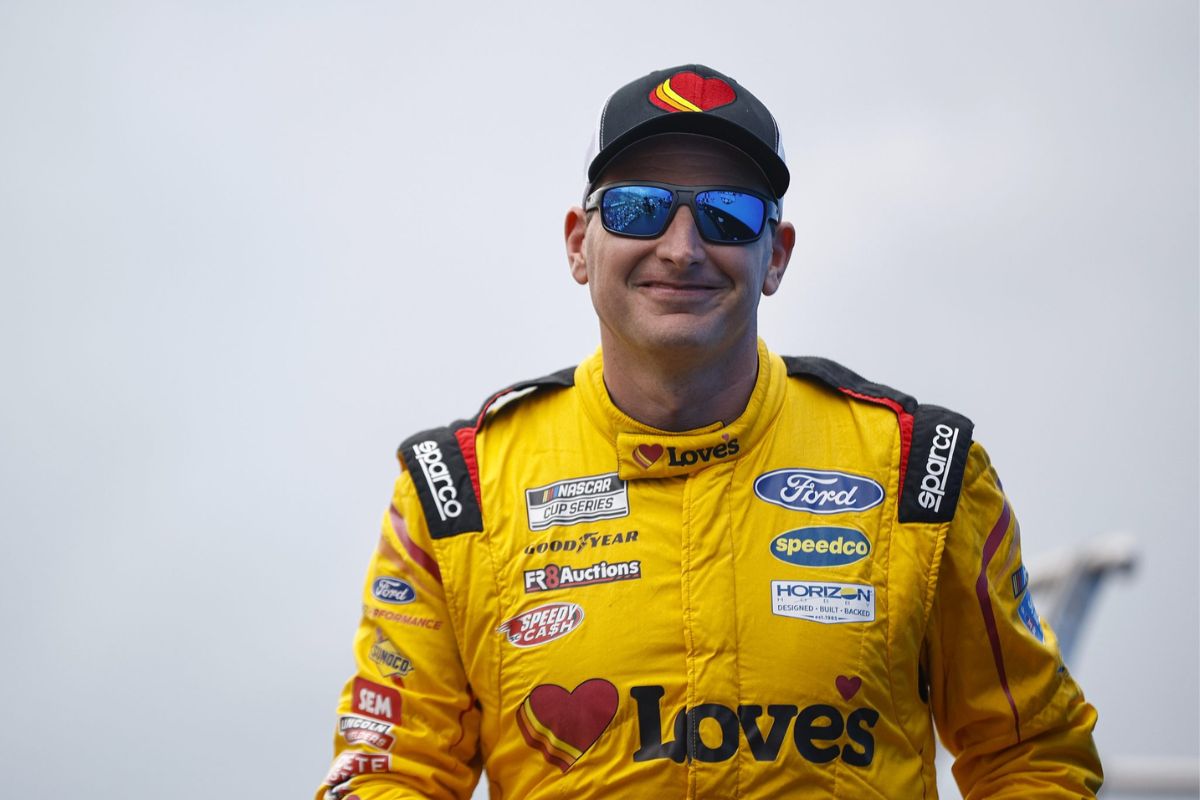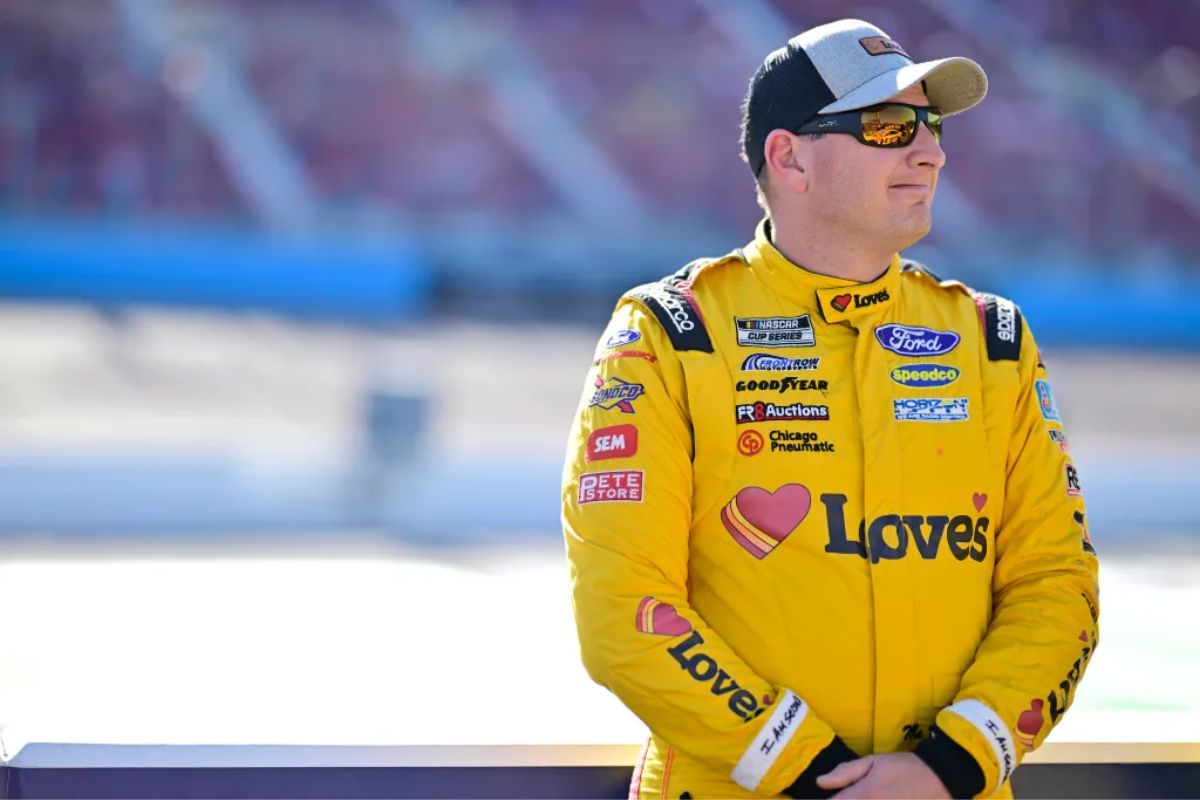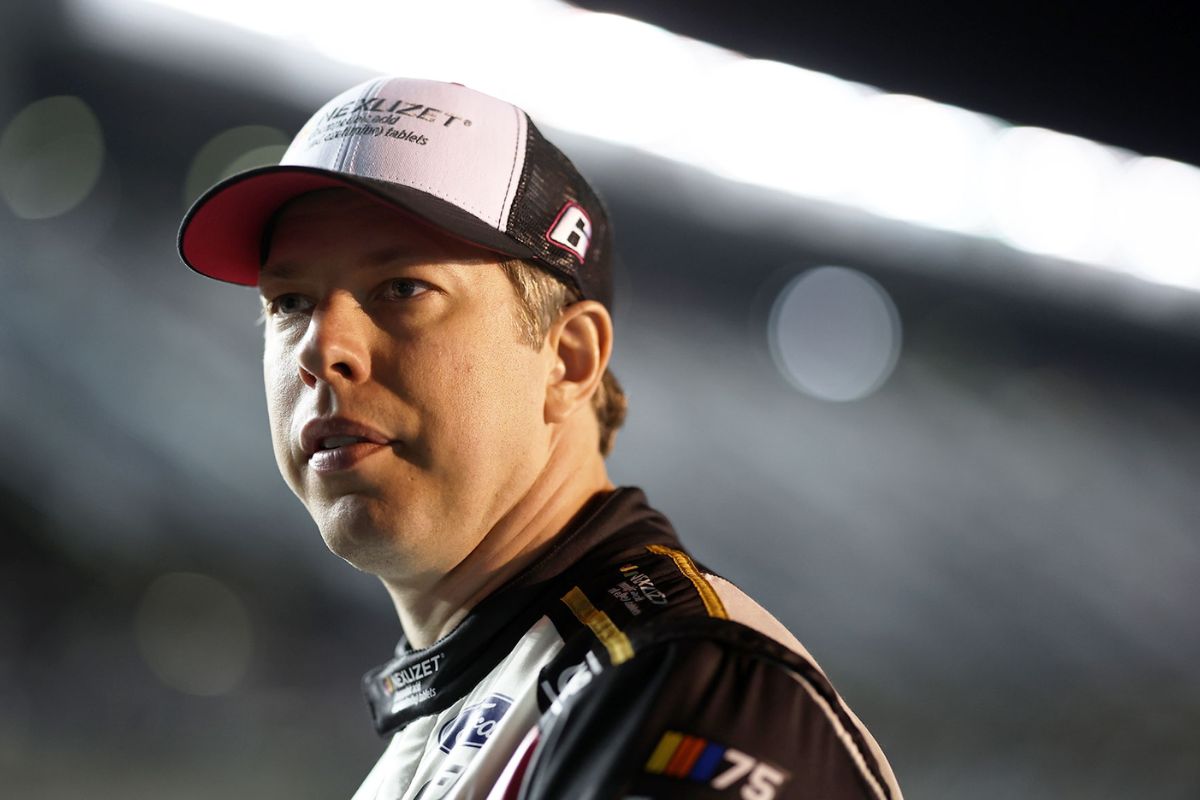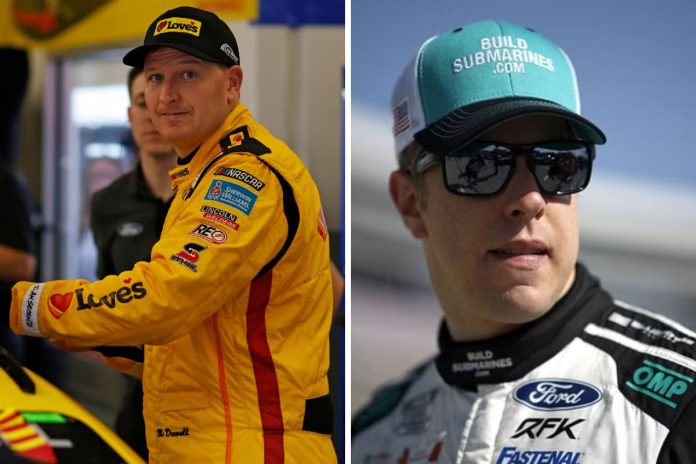Michael McDowell’s Talladega Crash: In the aftermath of the collision at Talladega Superspeedway, Alabama Michael McDowell’s sincere confession has certainly changed the usual narratives that emerge following such NASCAR incidents. By stepping forward and assuming full responsibility, McDowell not only cleared Brad Keselowski of any involvement but also highlighted a rare moment of openness and accountability within the sport. This admission could potentially catalyze a shift in how drivers address and reflect on their actions in the heat of competition.
Key Takeaways
- Michael McDowell took full responsibility for the Talladega crash, absolving Brad Keselowski of blame.
- His admission simplified post-crash discussions by eliminating disputes over fault.
- McDowell’s confession sets a new example for driver accountability in stock car racing.
- The incident provides insights into the pressures and decision-making complexities drivers face in racing.
- McDowell’s approach fosters a more collegial and educational atmosphere within the racing community.
Michael McDowell’s Blunt Admission
In a remarkable display of integrity, Michael McDowell openly acknowledged his sole responsibility for the crash during the final laps at Talladega, involving fellow racer Brad Keselowski. This forthright admittance not only highlights McDowell’s sportsmanship but also has a substantial impact on the narrative surrounding the incident. Typically, racing events like those at Talladega, with their high speeds and close quarters, often lead to multi-car pile-ups where blame is diffuse and contentious. However, McDowell’s acceptance of fault simplifies the aftermath discussions and any potential disputes among teams and sponsors.
Analyzing the situation, McDowell’s crash admission could serve as a crucial moment in how responsibility is handled in the high-velocity environment of stock car racing. Often, drivers and teams engage in a delicate dance of accusation and defense, leading to prolonged feuds and litigations that can overshadow the sport’s competitive nature. McDowell’s straightforward approach may set a new standard for accountability.
Moreover, McDowell’s acknowledgment ensures that the focus post-crash remains on the technical and strategic aspects of racing rather than descending into personal blame games.

McDowell’s Reflection on the Crash
Reflecting on the crash, Michael McDowell expressed deep regret over his decision to block Brad Keselowski, acknowledging that this move precipitated the dramatic finale of the race. McDowell’s tactical choice, aimed at securing a leading position, inadvertently set off a chain reaction that highlighted the unpredictable nature of motorsport. His strategic decision, intended to capitalize on the aerodynamic draft from Keselowski’s car, instead resulted in a loss of control for both vehicles. This critical moment not only cost them a potential victory but also significantly altered the race’s outcome, allowing Tyler Reddick to seize an unexpected win.
I had a choice to pick pit road or infield care and I chose pit road.
So I appreciate Michael McDowell taking time. He walks through the finish and his thoughts on the racing quality. pic.twitter.com/ie2QIsJSN7
— Matt Weaver (@MattWeaverRA) April 21, 2024
Analyzing the incident, it becomes clear that McDowell’s decision was influenced by the significant implications associated with the final laps, where split-second decisions can lead to monumental consequences. The dynamics of pack racing at Talladega, characterized by tightly-knit groups of cars traveling at high speeds, exacerbate the impact of any single driver’s actions.

McDowell’s Post-Race Chat
During his post-race discussion, Michael McDowell openly addressed the crash at Talladega, acknowledging his significant role in the incident. His analysis of the moment was forthright yet introspective, as he dissected the moments leading up to the crash with a precision that only a driver of his experience could offer. McDowell’s account was not only a confession but also a technical breakdown of the high-speed decisions made in split instances.
McDowell’s commentary sheds light on the razor-thin margins within which NASCAR drivers operate. His decision to shift positions was a tactical one, aimed at leveraging the draft from another car to gain an advantage—standard in restrictor-plate racing. However, the execution did not play out as intended. His admission of a ‘bad move’ that led to the crash reflects a deep understanding of his actions’ impact not just on his race but on the entire field.
McDowell’s Pride Despite Disappointment
Despite the setback at Talladega, Michael McDowell maintained a strong sense of pride in his team’s general performance. His reflection on the event highlights a profound understanding of the dynamics at play in racing environments. McDowell’s acknowledgment of his team’s ability to compete at a high level, despite finishing in 31st place.
McDowell’s commentary sheds light on the intricate aspects of racing that often go unnoticed by casual observers. He pointed out the vehicle’s speed and the team’s tactical expertise in navigating and controlling major lanes, which are fundamental for positioning in a race as unpredictable as Talladega. His use of phrases like “we were in the mix” and “putting ourselves in a position to win” not only demonstrates a tactical awareness but also a leadership in acknowledging team effort.

Keselowski’s Perspective and McDowell’s Apology
In his analysis of the final lap at Talladega, Keselowski highlights the unpredictable nature of racing, while McDowell’s sincere apology sheds light on his split-second decision-making errors that influenced the outcome. Keselowski, reflecting on the chaos, remarked on the inherent unpredictability that characterizes racing at Talladega—known for its high speeds and close quarters. His recounting of the events emphasizes a narrative familiar in motorsport: the fine line between strategic navigation and calamitous misjudgment.
McDowell’s honest acknowledgment of his missteps provides a rare insight into the psyche of a driver in the heat of a moment. McDowell’s apology, though steeped in the regrettable aftermath, carries implications far beyond personal accountability. His admission of a misjudged clearance when repositioning his vehicle in front of Keselowski speaks volumes about the razor-edge decisions drivers must make under pressure.
News in Brief: Michael McDowell’s Talladega Crash
Michael McDowell’s transparent acknowledgment of responsibility for the Talladega incident represents a defining moment in NASCAR’s culture of post-crash discourse. By absolving Keselowski, McDowell not only clarifies the narrative but also sets a precedent for accountability that boosts the sportsmanship within the racing community. This act shifts the focus from interpersonal disputes to more technical and strategic considerations, fostering a more constructive and respectful environment essential for the sport’s integrity and evolution.
Our Reader’s Queries
Q. Did Dale Jr. ever win at Talladega?
A. The Earnhardts have a legendary association with Talladega Superspeedway and drafting in NASCAR. Together, Dale Earnhardt Sr. and Dale Earnhardt Jr. secured a total of 16 NASCAR Cup Series victories at the iconic 2.66-mile track in Alabama. Earnhardt Sr. holds the record with 10 wins, the most by any driver at Talladega, while Dale Jr.’s six wins tie him for second place.
Q. Is Michael McDowell still racing?
A. McDowell is currently in his sixth season with Front Row Motorsports, having joined the team before the 2018 season. He achieved his first Cup Series victory in the season-opening Daytona 500 of the 2021 season, marking a significant milestone in his career, which includes 358 career starts.
ALSO READ: Michael McDowell Claims GEICO 500 Pole: Talladega’s Sensational Showdown


